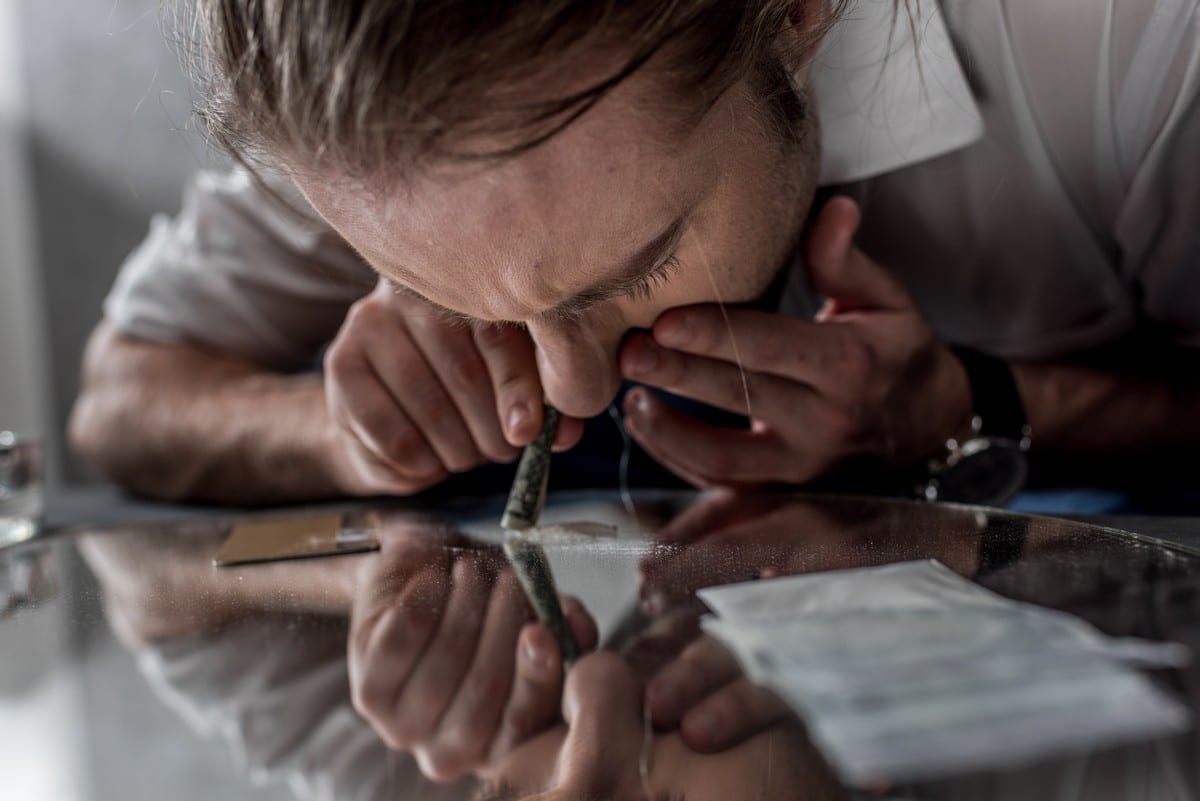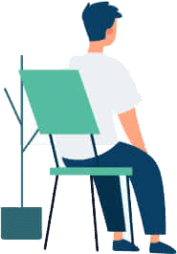How To Help Someone Addicted To Or Abusing Cocaine

Understanding Cocaine Addiction
If you suspect a loved one is suffering from cocaine addiction, it can be tough to know where to turn or what to do for the best. Cocaine addiction can have devastating effects on a person’s physical and psychological health, as well as their behaviour and all facets of their personal and professional lives.
Regular cocaine use can alter the brain’s chemical pathways, impairing one’s ability to think clearly. Cocaine addicts can be completely unaware of their condition. Through interventions, families can increase awareness, and once treatment starts, they may offer support and love to help the person stay in it. After the programme is through, families can keep an eye out for indicators of relapse and encourage re-entry into treatment if necessary.
Addiction is a condition that can have a variety of origins and triggers and eventually has an impact on the entire family. Genetics, early-life trauma, mental health problems, and a person’s unique biological make-up can all play a role in substance abuse and the possible development of addiction. Because cocaine alters the chemical pathways in the brain, it really alters how a person is able to experience pleasure. Fortunately, several effective treatment alternatives can help undo some of the damaging changes that cocaine misuse and dependence have caused in the brain and psyche.
Cocaine can obstruct regular thought processes, making it difficult for users to comprehend that change is required for their mental and physical well-being, as well as for the good of those around them. When a loved one has a cocaine addiction, they might not recognise that they have a problem or that treatment is required, and they might not go to someone for help on their own. Families might need to exert effort to persuade loved ones that assistance is necessary to make things better.
Signs and Symptoms of cocaine addiction
Understanding the psychological, behavioural, and physical symptoms of cocaine addiction will help you recognise when a loved one needs assistance. Here are some signs of a cocaine addict you should watch out for:
- They need to use more cocaine and more frequently to achieve the euphoria they seek.
- Even though their cocaine abuse is negatively affecting their lives, they seem unable to reduce it.
- When they haven’t used cocaine for a while, they start to act irritated and angry.
- They behave covertly and fabricate information regarding their whereabouts and cocaine use.
- They ‘borrow’ or take money from loved ones in order to buy cocaine.
- They stop participating in activities and events that they formerly loved.
- They mostly only associate with other cocaine users.
- When under the effect of cocaine, they behave impulsively, have greater energy, and are overconfident. They could act rashly and take any risks as a result of this.
- The physical side effects of the drug abuse, such as frequent nosebleeds from snorting cocaine, insomnia, decreased appetite, and a fast heartbeat, could also be affecting your loved one.
If you notice any of these cocaine addiction symptoms, it may be a clue that the person has a problem abusing cocaine and requires help from a specialist.
How to help a cocaine addict
You may do several things to assist a loved one if you suspect they may be battling a cocaine addiction. Here are some suggestions of “dos” and “don’ts” for helping a cocaine addict.
‘Dos’ of helping a cocaine addict:
Understand the signs of cocaine addiction.
As said above, it’s crucial that you take the time to learn all you can about the signs of cocaine addiction. By being aware of the signs and symptoms, you’ll be able to identify any triggers for your loved one’s cocaine abuse and determine when they appear to be going through a particularly difficult moment. You might observe, for instance, that they use cocaine after a demanding day or when they are anxious about something. You’ll be in a lot better position to support them if you are aware of the patterns and indicators in their behaviour.
Talk to them about your concerns.
For example, if you are concerned that a loved one may be a cocaine addict, try to be upfront and honest with them. It will be simpler for them to open up to you about what they’re going through if you choose a private time and location and where they’re likely to feel at ease. By starting the conversation, you’re letting your loved ones know you’re there for them and that they can talk to you about anything if they’re having trouble.
Take care of yourself.
Dealing with a cocaine addict can be exhausting and detrimental to your own health. Make sure you get enough rest, work out, and eat a balanced diet. Additionally, set aside some time each day to indulge in something enjoyable and calming, such as reading your favourite book, taking a hot bath, or listening to music. You’ll be more able to help someone else once your needs are satisfied. Remember that an empty cup cannot be used to pour from.
Encourage them to seek professional assistance.
While you can support a cocaine user to a limited extent, they will likely require professional rehab to eliminate their dependence. You may offer to schedule an appointment for them to see their doctor and then accompany them for emotional support while going over the recommendations and the subsequent steps. You can also get in touch with Compare Rehab UK to learn more about the cocaine addiction therapy we offer at various rehab facilities.
‘Don’ts’ of helping a cocaine addict:
Be critical or accusatory.
It might be challenging to comprehend why someone is acting the way they are if you have never dealt with an addiction, and you can feel upset. To increase the likelihood that they will be able to open up to you, though, approach the topic in a kind and empathetic manner. You must avoid coming off as critical or confrontational while you’re trying to communicate with the person.
Enable their behaviour.
It might be simple to slip into the trap of enabling someone you care about who is battling a cocaine addiction. Even when we have the best of intentions, we can nevertheless enable someone to continue abusing cocaine by the actions we take on their behalf. For instance, they can excuse themselves from work on your behalf, or you might justify their drug usage to others. By supporting the cocaine addict’s actions, you’re preventing them from accepting any accountability for their choices, which may cause their addiction to worsen. It can be challenging to use “tough love,” but it’s ultimately the best thing you can do to assist someone with cocaine addiction in facing their problems and taking responsibility.
Specialist cocaine addiction treatment
The two main types of treatment are inpatient and outpatient, and both offer a variety of approaches. Addiction affects each person differently, and some people may respond better to certain treatment regimens than others. Families can choose the models that are ideal for their particular situation by being aware of the possibilities available to them.
Due to the extremely personalised nature of care and recovery, there is no set timetable for addiction treatment. In outpatient treatment programmes, people who are struggling with drug misuse and addiction may go to a variety of seminars, meetings, and workshops each day while going home at night. These programmes tend to be more adaptable, but they also call for a strong support system that is centred on therapy and recovery. Inpatient treatment methods are frequently more thorough since patients spend more time on-site away from any potential outside stressors that can impede healing. For people with long-term or more serious addictions, inpatient care typically offers a more rigorous treatment programme.
Cocaine is a stimulant, which means that it tends to speed up body systems and activities. As a result, when it is abruptly stopped, cocaine withdrawal symptoms like irritation, difficulty concentrating, depression and weariness may start to appear. Regular cocaine usage can cause dependence on the substance, which can have negative physical and psychological implications.
Cocaine’s half-life is not very long. According to experts, cravings and withdrawal symptoms might begin a few hours after the last dose. Medical detox is frequently the initial phase of a cocaine addiction treatment programme. When undergoing medical detox, patients are closely watched around the clock to ensure that all physical and mental health needs are satisfied quickly. Medication may also be utilised to treat particular symptoms and drug cravings. A thorough treatment programme, which is likely to include therapy sessions, support groups, educational opportunities, and counselling, can be put into place once cocaine has been safely removed from the body.
The following are a few possible approaches for treating cocaine addiction:
- Motivational Interviewing (MI) is a technique in which positive drug tests are rewarded with prizes or vouchers. According to expert research, 54.4% of those with MI exhibited a dec rease in drug usage, compared to 38.7% of those in the control group.
- The research-based therapy model known as cognitive behavioural therapy (CBT) is concerned with the connection between ideas, deeds, and behaviours. It assists people in discovering fresh, more efficient methods for handling stress, and experts have remarked that it is useful in preventing recurrence.
- Support and 12-step groups are available for both family members and those who are addicted to cocaine. Narcotics Anonymous and Cocaine Anonymous are two of these organisations.
- There are no specific medications to treat cocaine use; however, topiramate, a medication often used to treat epilepsy, has shown promise in numerous studies.
- In order to make sure the appropriate degree of care is being provided, assessments are typically performed before beginning therapy and subsequently on an ongoing basis. People may switch between levels of care as their needs alter during therapy. With the help of addiction specialists, families can select the ideal treatment plan and approach for their loved ones.
Call one of our experts on 0800 999 1083 for confidential help and to discuss treatment options.





